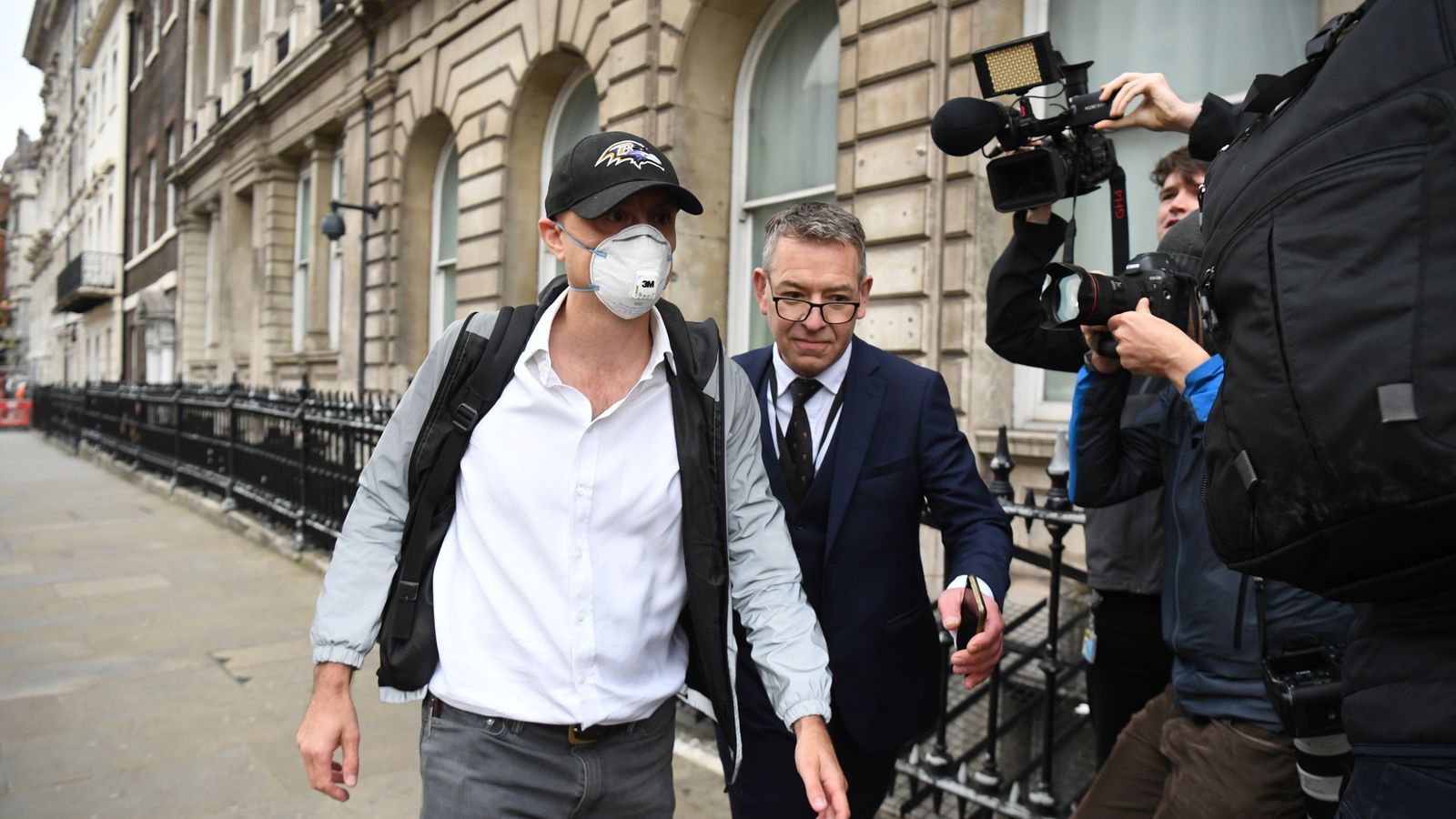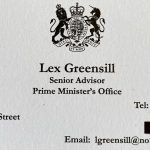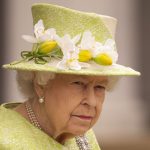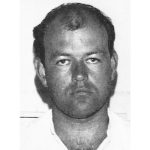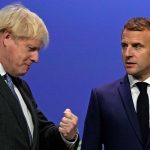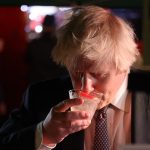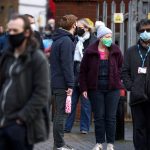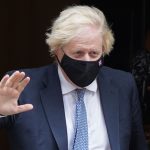During the hours of evidence given by Dominic Cummings he made clear he held a number of senior figures in contempt, and others in the highest regard.
The pointed nature of the character assassinations of some cabinet ministers and officials stood in stark contrast to the unqualified praise heaped on others.
Set against the dramatic backdrop of his central allegation – that tens of thousands people died who did not need to – the testimony of Boris Johnson’s former chief adviser could have significant political ramifications.
THE VILLAINS:
Matt Hancock
No other figure came in for greater criticism than the health secretary.
Mr Cummings argued Mr Hancock “should have been fired for at least 15 to 20 things including lying”.
He claimed “from February or March I was saying if we don’t fire the health secretary… we are going to kill people”.
He suggested the health secretary “interfered” with official plans to ramp up test and trace by promising 100,000 tests a day by mid-April.
“Hancock wanted to go on TV and say I’ve hit my 100k target. It was criminal, disgraceful behaviour that caused serious harm”.
He also accused the health secretary of encouraging the prime minister to use the term ‘following the science’ so that the chief medical officer and chief scientific adviser could be used as “shields” to protect the government from criticism.
Mr Hancock will appear before the same parliamentary committee in two weeks’ time.
Boris Johnson
The assessment of Boris Johnson set out by Dominic Cummings was damning.
Asked whether he thought the prime minister was a “fit and proper person to get us through the pandemic” the blunt response was “no”.
Asked if things could have been different with a different prime minister, the answer came “absolutely, yes”.
He claimed he had personally heard Mr Johnson, shortly after he had ordered the second national lockdown in the autumn, say he would rather see ‘the bodies pile high’ than order another.
He accused Mr Johnson of confusing the government’s strategy by changing his mind “10 times a day”, creating a “communications disaster zone”, adding that he had “made some terrible decisions and got them wrong, constantly U-turns on everything”.
Carrie Symonds
Dominic Cummings continually referred to Ms Symonds, who is the prime minister’s fiancée, as his “girlfriend”.
He suggested she had distracted Boris Johnson from taking key decisions about the pandemic on 12 March because she was “going crackers” about a story that she was planning to rehome their dog Dilyn.
Most serious of all, however, was the accusation Ms Symonds was trying to “appoint her friends to particular jobs” and overturn the outcome of an official process about hiring for a particular job, which was “not only completely unethical but was also clearly illegal”.
Sir Mark Sedwill
Sir Mark Sedwill was the cabinet secretary up until September of last year, but having been promoted to the role by Theresa May there was always known to be a tension with key figures in Boris Johnson’s top team.
It was therefore not surprising to hear Dominic Cummings include Sir Mark in his list of people he wanted to single out for criticism.
The most notable accusation made was that on 12 March, the day that the prime minister used a Downing Street press conference to say he needed to “level with the British public” that many more people would lose loved ones.
Sir Mark had advised Mr Johnson to tell the public COVID was “like chickenpox” and encourage the public to have chickenpox parties to spread the virus.
THE HEROES:
Rishi Sunak
Dominic Cummings was so intent on praising the chancellor that it led one MP to ask if he was trying to secure himself a position in a future Sunak administration.
He said the chancellor and his team were “completely competent” in developing the furlough programme and that Mr Sunak was “totally supportive” of the first lockdown, contrary to reports in the media that he was pressing against the imposition of restrictions.
Dominic Raab
When the prime minister was critically ill with COVID, Dominic Raab deputised for Mr Johnson in his role as first secretary of state.
Mr Cummings said Mr Raab had done a “brilliant” job chairing top-level meetings when the PM was ill, in contrast to how he claimed Matt Hancock had behaved.
Mr Cummings said the foreign secretary did not get ”enough credit as he should have done”.
Michael Gove
Dominic Cummings was highly critical of the Cabinet Office, but was at pains to stress he did not think Michael Gove was responsible for the failings of the department he runs.
Mr Cummings previously worked as a special adviser to Mr Gove during David Cameron’s premiership.
Asked whether Mr Gove was responsible for failures around government procurement, Mr Cummings said: “I don’t think Gove had a huge amount of responsibility for this.” Although he suggests Michael Gove himself would probably accept some mistakes had been made.
Ben Warner
Data scientist Ben Warner had worked with Dominic Cummings during his time leading the Vote Leave campaign in the 2016 Brexit referendum, and hired him to work in Number 10 when Boris Johnson became prime minister.
He referred to Mr Warner as “Jeff Goldblum in Independence Day”, crediting him for talking Boris Johnson through the data on 13 March and showing the modelling was wrong.
Marc Warner
Dr Marc Warner is the brother of Ben, and the CEO of the AI company Faculty, who have won numerous government contracts to provide ‘data dashboards’ for different departments and the NHS.
Dominic Cummings brought him in to advise the government during the pandemic and described Marc Warner as “one of the most ethical people I’ve met”, later adding that without him “thousands of people would be dead”.
He went on to say: “If I’d been prime minister I would have said Marc Warner is in charge of this whole thing” and suggested he would have made him “a kind of dictator” with “kingly authority” to fire people at will.
Helen McNamara
Dominic Cummings also singled out former Cabinet Office official Helen McNamara for deserving “enormous credit” for openly telling the PM that something had gone “catastrophically wrong” in COVID planning.
Kate Bingham
The vaccine taskforce was held up by Mr Cummings as an example of something that went right, claiming there was “clear responsibility and there was someone who was actually in charge of it”.
He said Ms Bingham had built a team of people that actually understood what they were doing and “had the kind of strength of character not to be pushed around”.
Patrick Vallance
Chief scientific adviser Sir Patrick Vallance was described in glowing terms by Mr Cummings, who repeatedly suggested he had been an ally in efforts to persuade the prime minister to hive off some responsibilities from the department of health.
